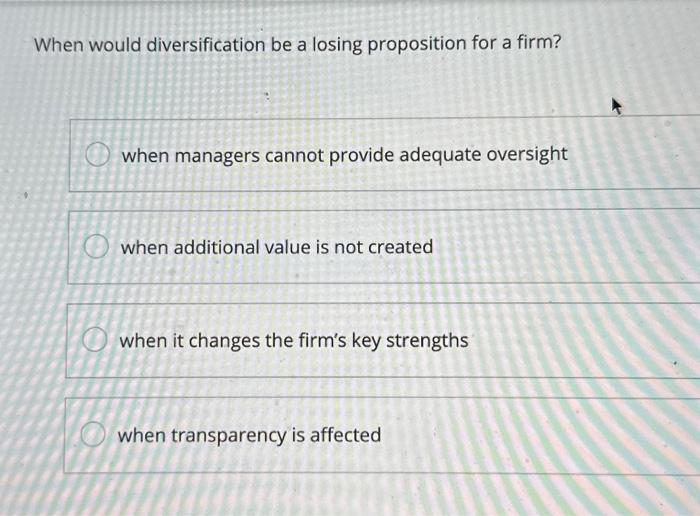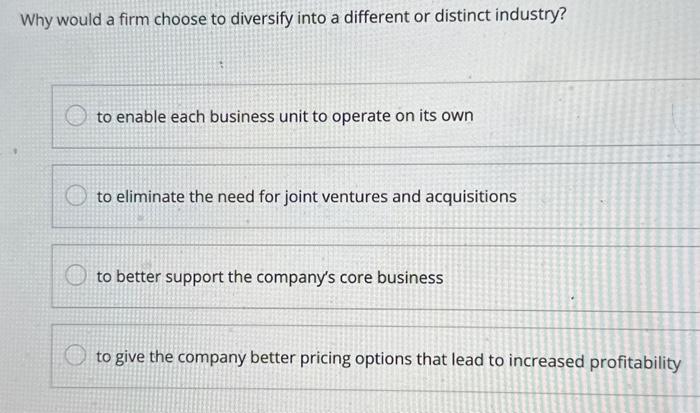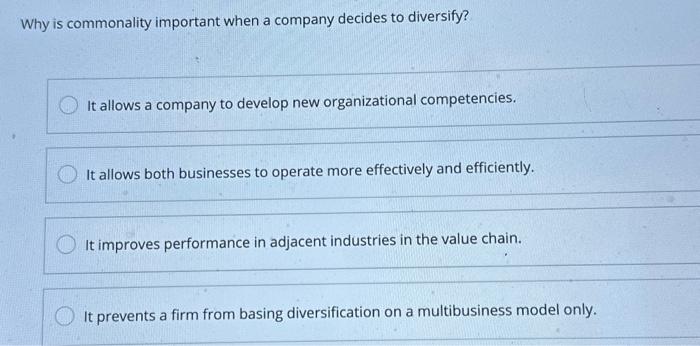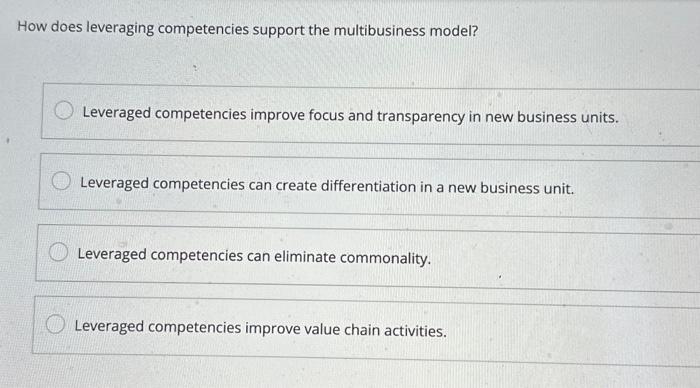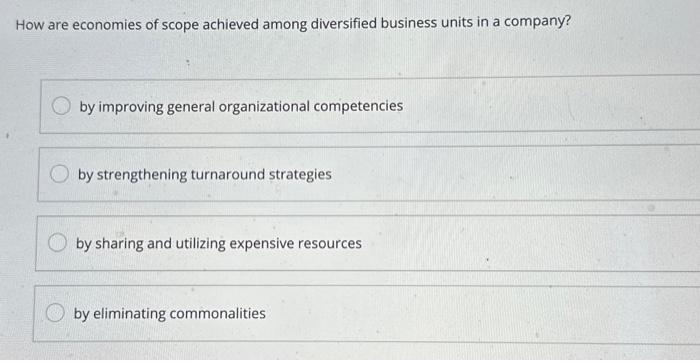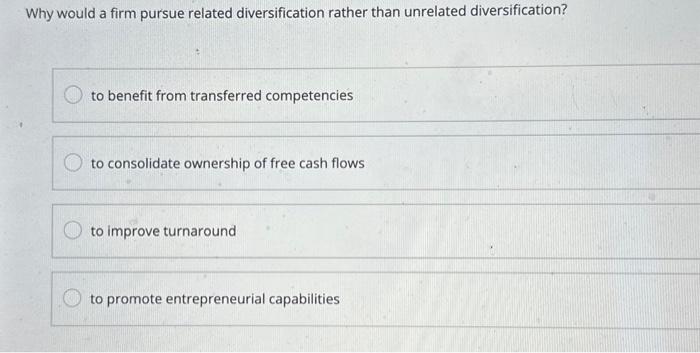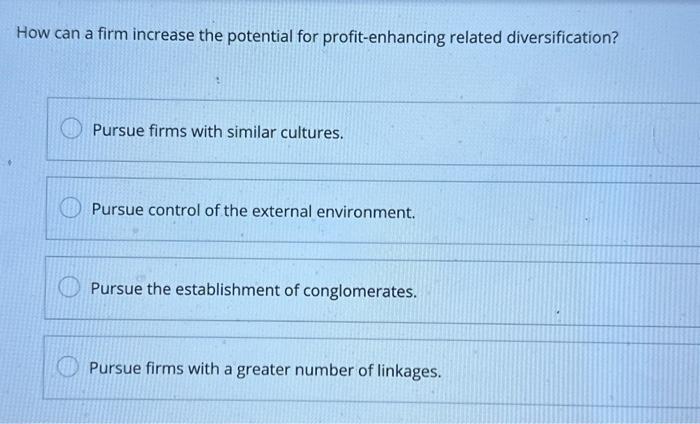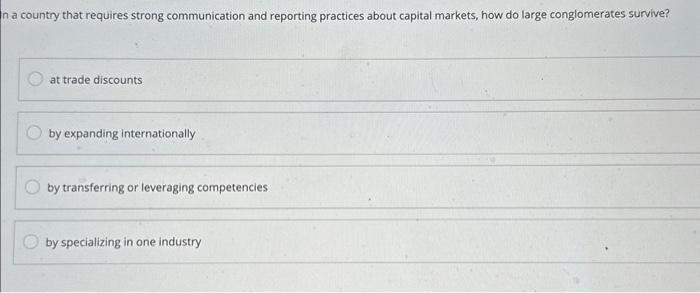10 PART QUESTION!! please help this question has so many parts!
Need all parts to get full credit!
Thanks so much
When would diversification be a losing proposition for a firm? when managers cannot provide adequate oversight when additional value is not created when it changes the firm's key strengths when transparency is affected Why would a firm choose to diversify into a different or distinct industry? to enable each business unit to operate on its own to eliminate the need for joint ventures and acquisitions to better support the company's core business to give the company better pricing options that lead to increased profitability Why should a company's decision to pursue diversification exceed the value of the returns shareholders would have received if free cash were distributed to them? Shareholders expect growing returns from companies in which they invest. Shareholders will have less access to cash to cover future company needs. Shareholders do not expect firms to expand outside of their industry. Shareholders are the owners of the free cash flow. Why is commonality important when a company decides to diversify? It allows a company to develop new organizational competencies. It allows both businesses to operate more effectively and efficiently. It improves performance in adjacent industries in the value chain. It prevents a firm from basing diversification on a multibusiness model only. How does leveraging competencies support the multibusiness model? Leveraged competencies improve focus and transparency in new business units. Leveraged competencies can create differentiation in a new business unit. Leveraged competencies can eliminate commonality. Leveraged competencies improve value chain activities. How are economies of scope achieved among diversified business units in a company? by improving general organizational competencies by strengthening turnaround strategies by sharing and utilizing expensive resources by eliminating commonalities Why would a firm pursue related diversification rather than unrelated diversification? to benefit from transferred competencies to consolidate ownership of free cash flows to improve turnaround to promote entrepreneurial capabilities How can a firm increase the potential for profit-enhancing related diversification? Pursue firms with similar cultures. Pursue control of the external environment. Pursue the establishment of conglomerates. Pursue firms with a greater number of linkages. Why do companies use their internal capital markets to fund unrelated diversification? Shareholders are seeking higher returns on their investment. Internal investment opportunities are poor. The internal capital market has sustained profitability. External capital markets are offering cheaper cash options. a country that requires strong communication and reporting practices about capital markets, how do large conglomerates survive? at trade discounts by expanding internationally by transferring or leveraging competencies by specializing in one industry
